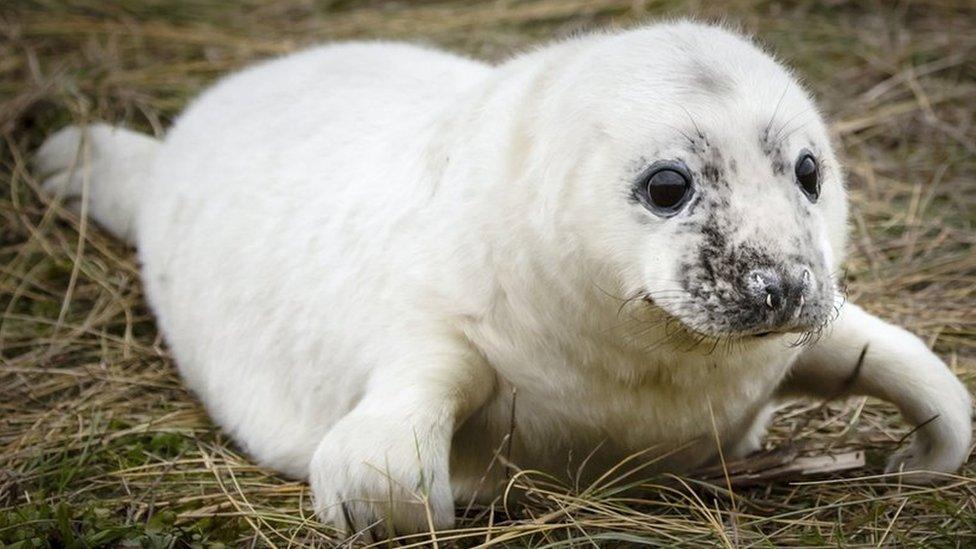Norfolk seal pup births increase 25-fold in 20 years, expert estimates
- Published
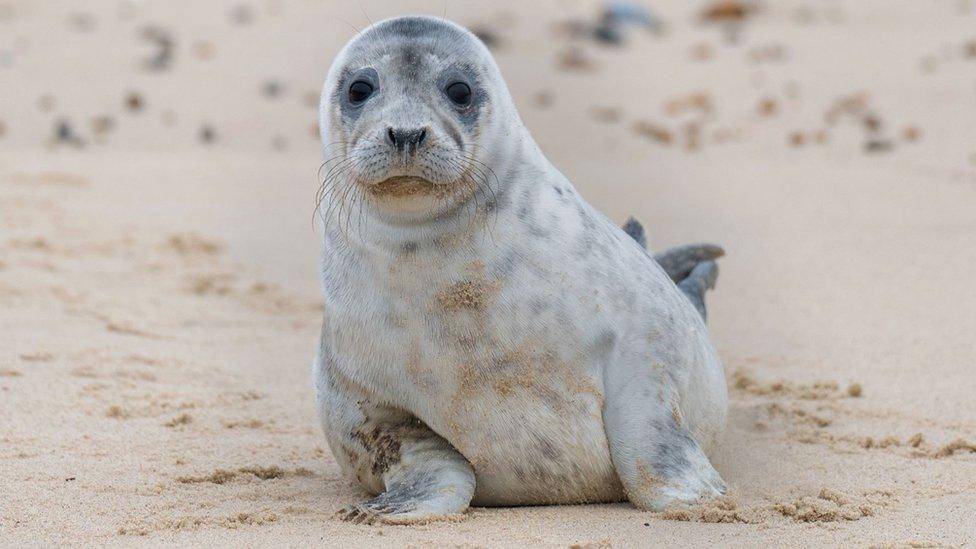
The seal pup count could also not be completed last year due to Covid-19 regulations
The number of grey seals born on a stretch of the Norfolk coast has increased from fewer than 100 each year, to about 2,500 annually in 20 years, an expert has estimated.
High tides forced the animals on top of the dunes at Horsey Gap, making it too dangerous for the usual count.
But Peter Ansell, chairman of Friends of Horsey Seals, said he could make an "educated guess" on numbers.
He said seals were living longer and reproducing at a rapid rate.
"It's a bit like the human population, really," he added.
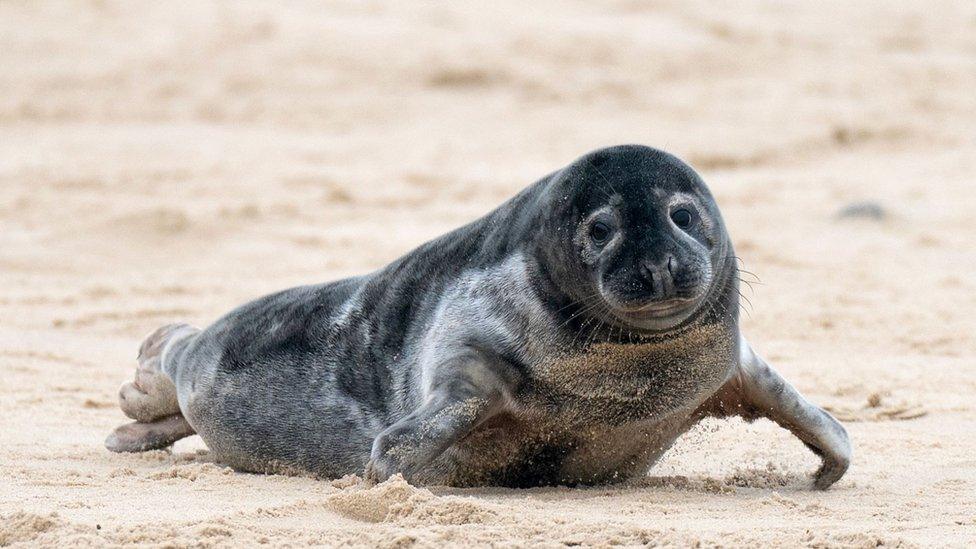
The pupping season runs until late January
The seals are born on the stretch of beach between Waxham and Winterton.
Mr Ansell said: "Every year you've got a fresh batch of new mothers coming along, in addition to all the established ones."
He said future counts may also be called off if the coast continued "to get these extra-high tides".
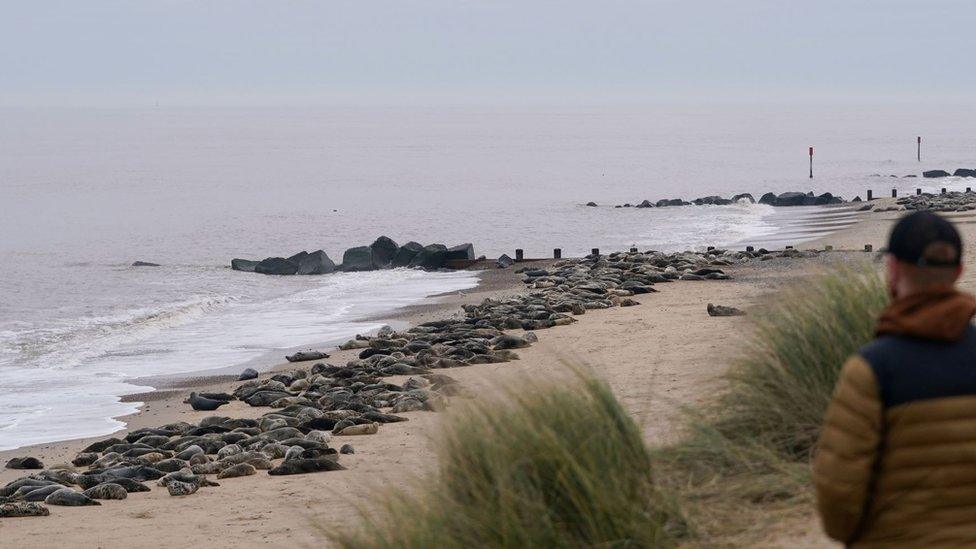
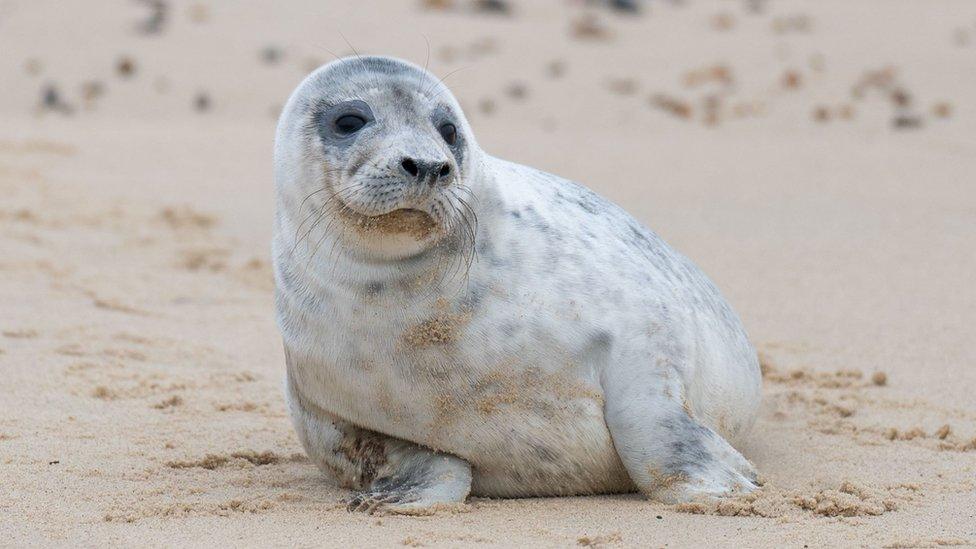
The high tides made it too dangerous for volunteers to carry out their usual count
There was a possibility the seals could migrate to open beaches further down the coast, Mr Ansell said.
"But we're talking about nature here, and with nature you've no idea what's going to happen next week, never mind next year," he said.
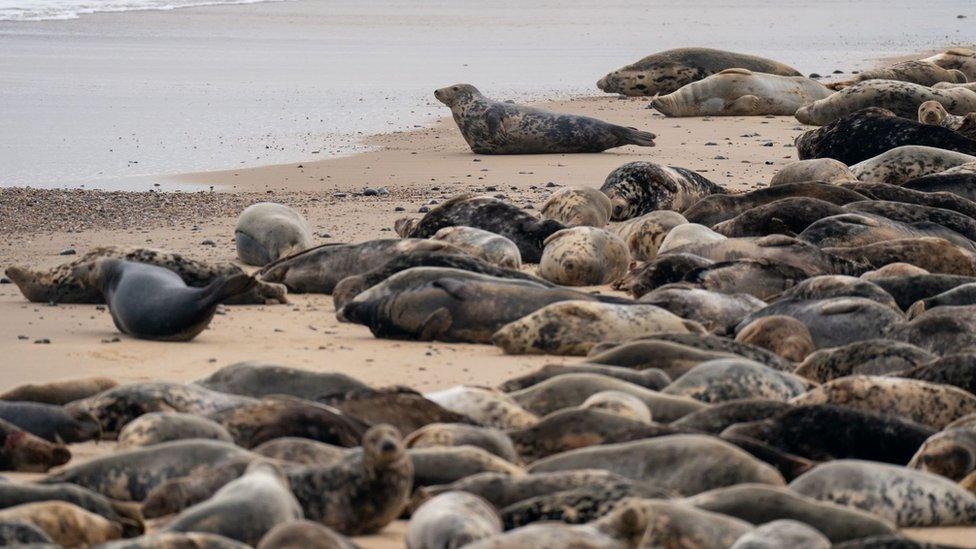
The Friends of Horsey Seals said older seals were living longer
"At the moment it currently has expanded from a very, very tiny strip of beach... in say 2002/2003 there were less than 100 seals on the beach.
"There were much less than 100 pups born. And from there it's gone from 50 or 60 pups... in 20 years it's gone up to 2,500."
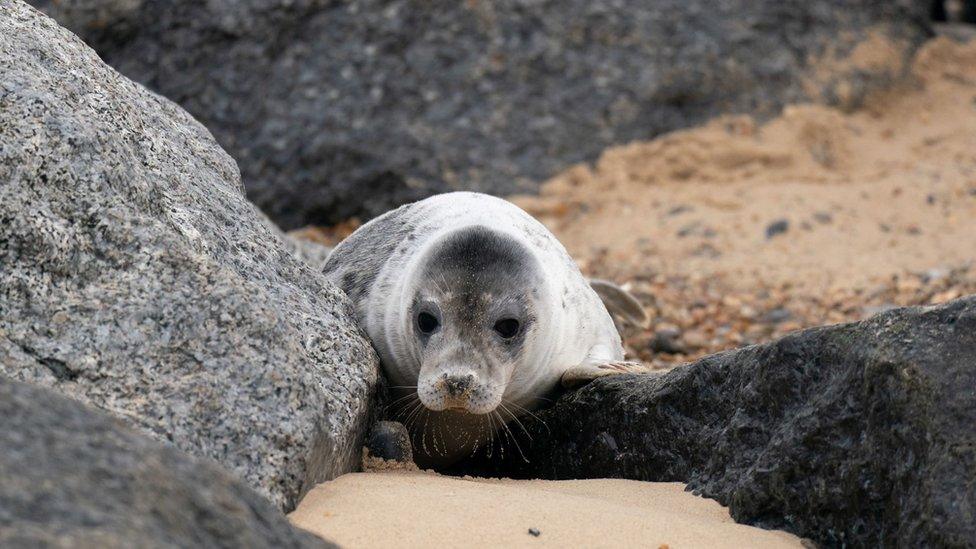
Horsey is between Great Yarmouth and Cromer and is popular with tourists

Find BBC News: East of England on Facebook, external, Instagram, external and Twitter, external. If you have a story suggestion email eastofenglandnews@bbc.co.uk, external
- Published29 October 2021
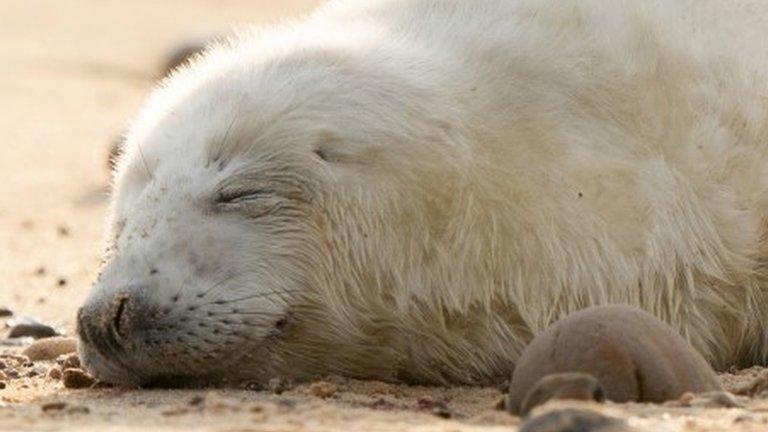
- Published28 February 2020
